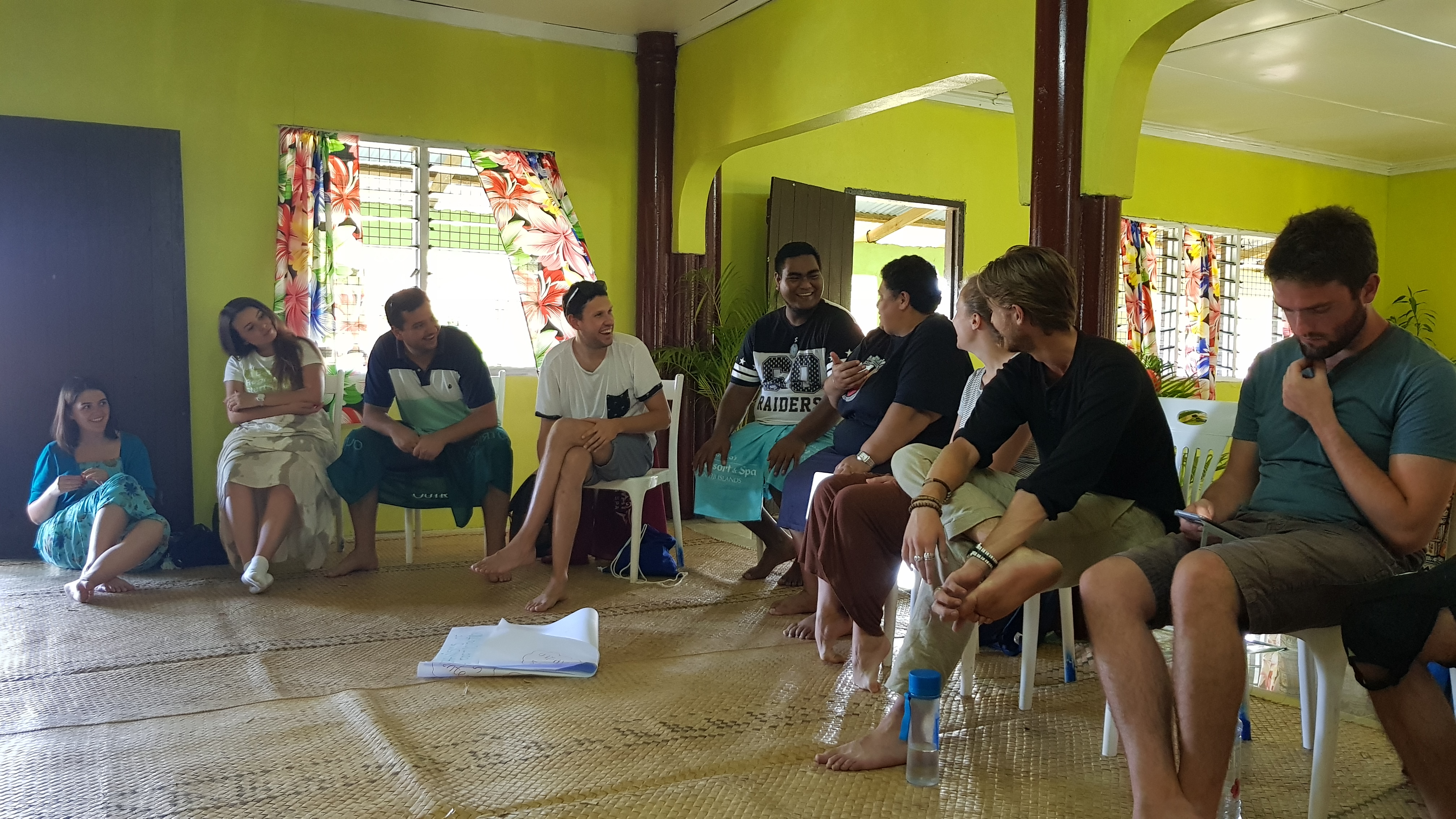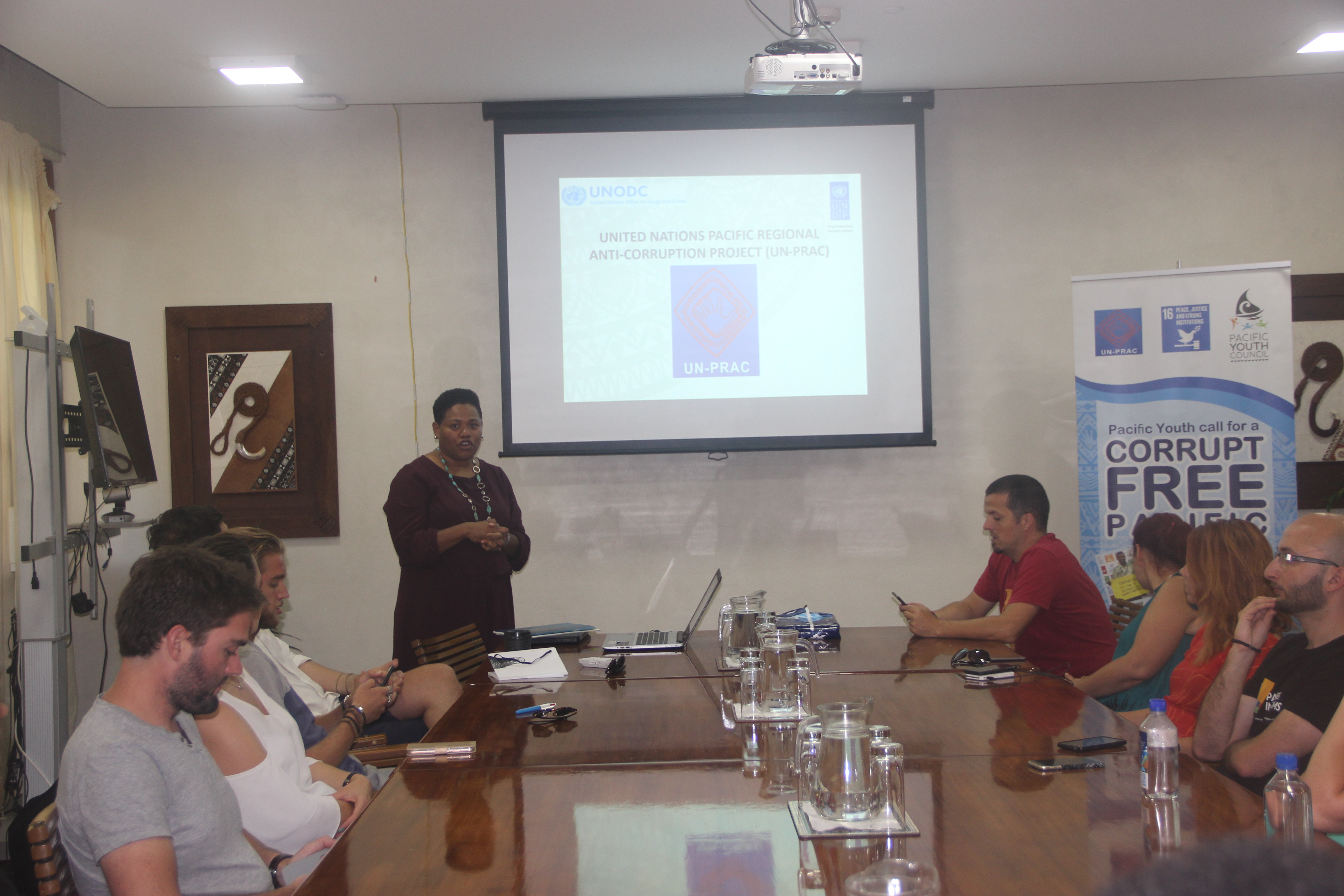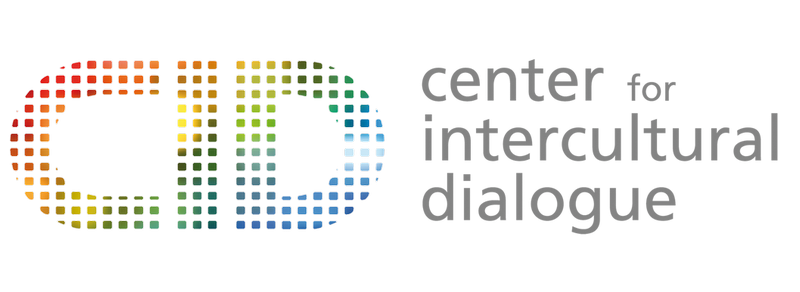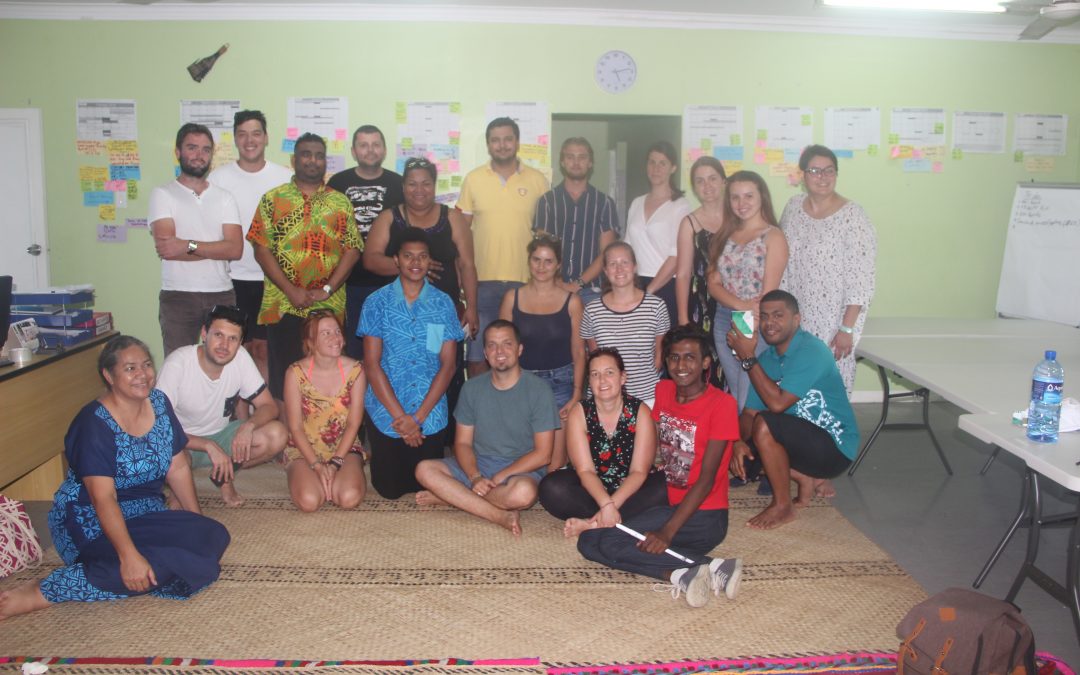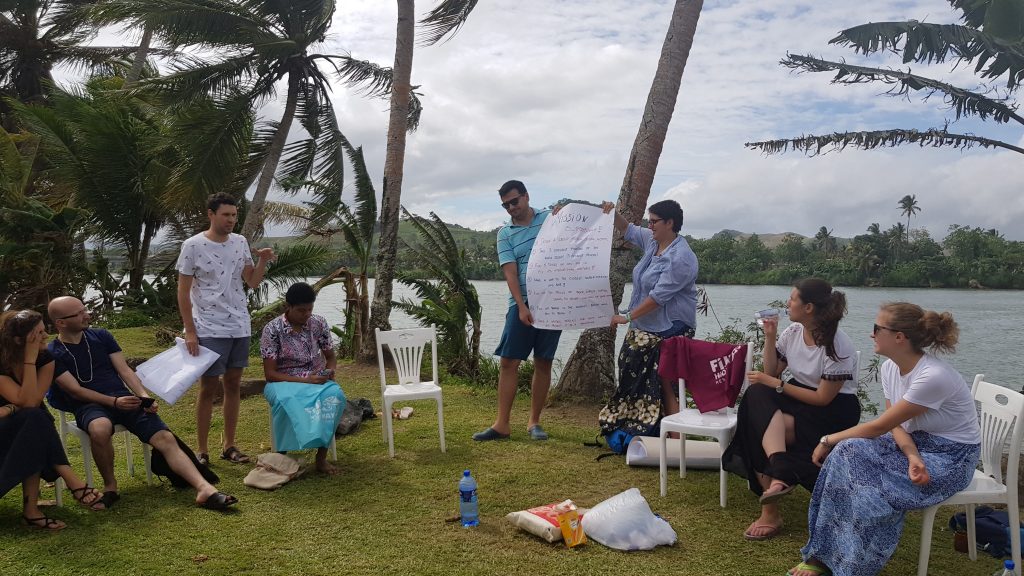It has been a difficult journey, paved with obstacles, to bring the global project ”Youth Participation Parkour” to life. Different time zones all around the globe, bureaucratic inquiries that slowed down the establishment of the partnership, limitations regarding the tools available for communication are some of the obstacles that we, young people, faced when preparing the implementation of this project. Nevertheless, our perseverance towards achieving our goal and the support from the CIVICUS network and the Education, Audiovisual and Culture Executive Agency of the European Commission, as well as from our partners have made the journey a fruitful one.
Indeed, young people face various obstacles when they participate in society, in politics, in community. Our efforts to understand how different mechanisms can support youth to break these obstacles and to actively participate in decision-making on policy and community level has brought us this time to Fiji. During a 10-day youth exchange that gathered 24 young people from Macedonia, Belgium and Fiji (12-22 July 2018), we have looked at various models of youth participation identified in the European and Pacific contexts and have worked together to understand how these mechanisms and structures can be improved or applied to other contexts. The youth exchange was organised by Center for Intercultural Dialogue with the support of CIVICUS: World Alliance for Citizen Participation (Stefan Manevski was present during the youth exchange as a member of the Youth Action Team), YEU International, National Youth Council of the Fiji Islands and Pacific Youth Council.
The youth exchange had the following structure: in the first part, the group was hosted by locals in the village of Yavulo. Every participant was ”adopted” by a local family, having the chance to experience the cultural life of the village and to participate in the events of the community. Thus, while during the days the group was having sessions that looked at youth participation in the context of Macedonia, Belgium, Fiji, but also on European and Pacific levels, at night the group was experiencing a complete immersion into the Fijian culture, from drinking the sacred drink called kava with the local chief and council, to attending a mass at church and exchanging gifts with the leaders of the community. The participants took part in fishing, danced and sang together traditional songs and shared food from both continents. In an attempt to give back to the community, the group organised a cleaning action around the streets of the closest town, Sigatoka, to raise awareness of the need to include young people in the actions that bring about the betterment of the community. The session about Erasmus+ and opportunities to build further partnerships in the context of global cooperation did not miss from the programme either, with very interesting project proposals to be developed in the upcoming future.
The second part of the youth exchange took part in Suva, the capital of Fiji, where the methodology consisted of combining visits to local and national-level NGOs and institutions with discussions and reflections on how these structures support youth participation. This is how the participants have learned that, due to the fact that almost half of the Fijian population consists of young people, most of the civil society organisations either have a youth component (Red Cross has a Youth department, 350.org supports a Students movement, etc.). Regarding the topics of interest to youth, a big part of their engagement is dedicated to fighting global warming and building resilient communities that can efficiently put up with the natural conditions that affect Fiji and the Pacific area. Among the visited institutions and organisations we mention the Ministry of Youth and Sports, Fiji Women’s Crisis Centre, Pacific Youth Forum Against Corruption, 350.org, Fiji Council of Social Services, National Youth Council of Fiji, PIANGO, 350.org, Red Cross Fiji, etc.
Finally, the youth exchange concluded with the group going back to Yavulo village to have a look back at the whole experience, discuss their impressions and reflections, conduct the evaluation and say a proper goodbye to the community that hosted them in the warmest way possible.
The full photo gallery can be accessed here.
